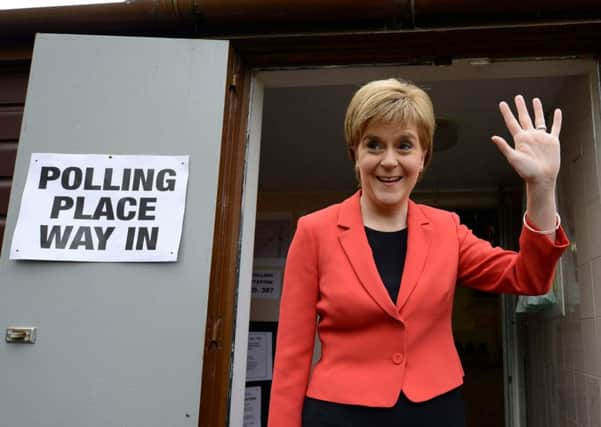SNP lost majority '˜not caused by Green list vote'


Campaign warnings to Nationalist supporters that using their second vote for the Greens would bolster Unionist parties were also unfounded, according to the research.
The report by the Electoral Reform Society (ERS) instead found a few key constituency losses had cost the SNP a repeat of the 2011 result, which allowed the party to form Scotland’s first majority government.
Advertisement
Hide AdAdvertisement
Hide AdNicola Sturgeon’s party won 63 seats in the May poll, down from 69 in the 2011 ballot and two seats short of an overall majority.
John Curtice, professor of politics at the University of Strathclyde and author of the report, said there is little consistent evidence that the SNP lost out because unionist voters “ganged up” by voting for whichever of the unionist parties appeared best placed to defeat the nationalists locally.
“Labour’s vote, for example, actually fell most heavily in constituencies where they had previously shared first and second place with the SNP,” Prof Curtice said.
“Some of those who voted for the SNP on the constituency ballot do appear to have backed the Greens on the list vote, where the SNP’s tally fell.
“While this may have cost the SNP one or two list seats, the higher level of support for the Greens helped ensure that there were more pro-independence MSPs at Holyrood than would otherwise have been the case.
“The main reason why the SNP lost out was that the party failed to win a number of key constituency contests - in particular, two in Edinburgh and one in Fife, Aberdeenshire and Dumbarton - that the party should have won, given the national swing.
“These failures were not compensated for in the allocation of list seats because elsewhere in the relevant region the SNP had already won its proportionate share of seats in the constituency contests. The result was a more proportionate outcome than would otherwise have been the case - or, indeed, actually occurred in 2011.”